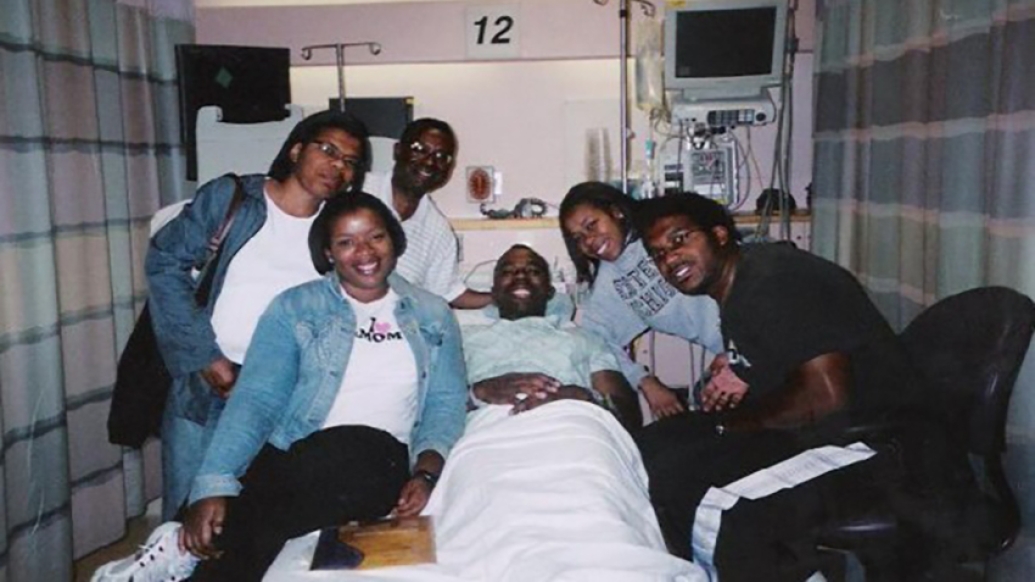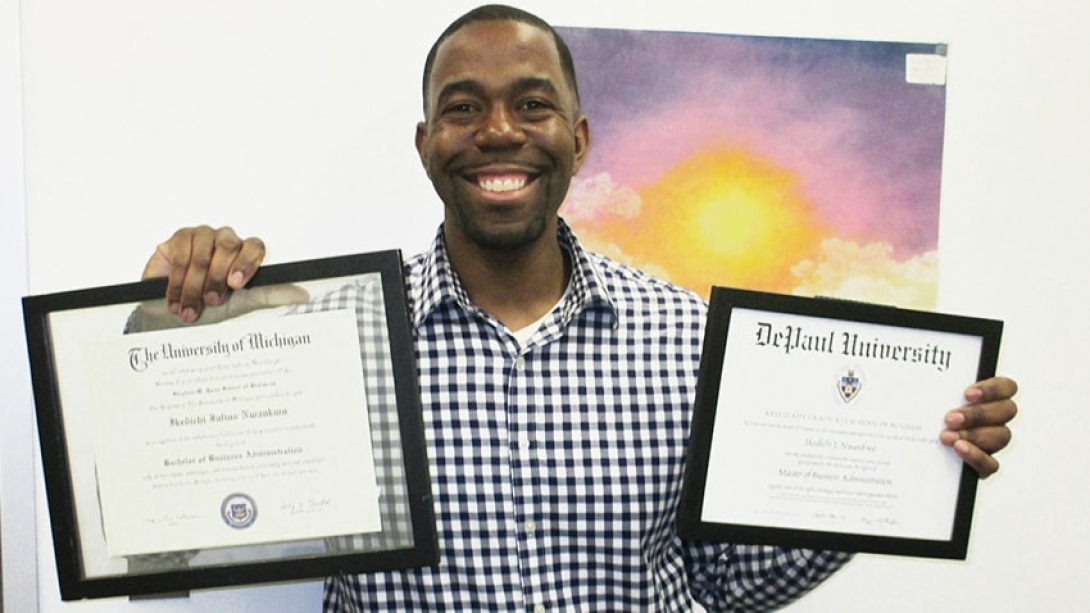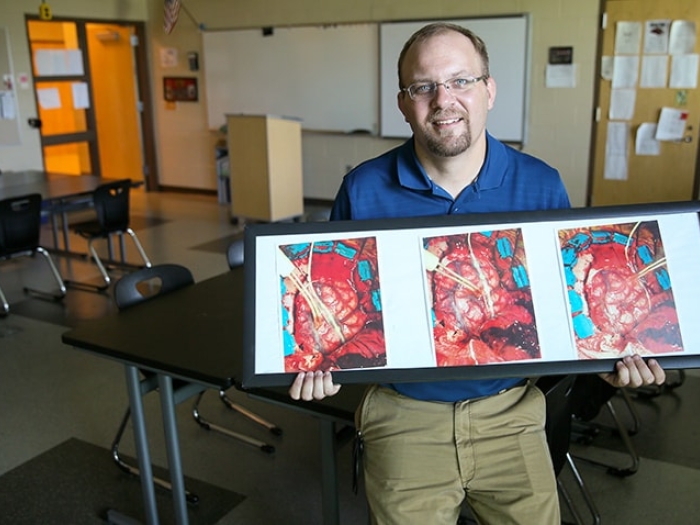After epilepsy surgery, Ike Nwankwo has found meaning sending joy to children with medical conditions.
7:00 AM
Author |

Not many people can say their brain surgeon came to their college graduation party.
MORE FROM MICHIGAN: Sign up for our weekly newsletter
"He shook my hand and told me to put that part of my brain to good use and do something important," says Ike Nwankwo. Nwankwo, who has epilepsy, says it is much better managed after neurosurgery 12 years ago. "I think it's great that, though he's got so many patients, he stays connected to me."
Nwankwo had his first seizure in 2004, while he was a University of Michigan student. Soon he was experiencing about 15 seizures every day.
"I'd zone out and get goosebumps down my arm," he says. The episodes were interfering with his schoolwork, and the marketing student was getting frustrated. He started undergoing diagnostic testing and at first was told he had a brain tumor. Eventually, Nwankwo found out it was epilepsy and would be best managed with surgery.
"There was some question about where the seizures were coming from," says Nwankwo's surgeon, Oren Sagher, M.D., the William F. Chandler Collegiate Professor of Neurosurgery at Michigan Medicine. "We put electrodes into his brain to monitor the seizures, then operated based on that information."
Sagher performed a left selective amygdalohippocampectomy in the part of Nwankwo's brain that could impact speech and short-term memory. The relief was immediate, and it was months before the then-22-year-old experienced another seizure.
Returning to classes just a month after brain surgery was a struggle, though, and his grades slipped as he continued recovering. But Nwankwo wasn't giving up. He graduated from U-M's Ross School of Business 10 years ago, with Sagher attending to celebrate the accomplishment.
"He's a vibrant, gregarious guy," Sagher says. "He's had some seizures since surgery, but he's doing well and currently seizure-free."
After some setbacks, Nwankwo returned to U-M to work with Simon Glynn, M.D., for management.
"We revised his medications pretty extensively, and Ike has done very well, now with only very infrequent seizures, and hopefully will become seizure-free," says Glynn, an associate professor of neurology.

Giving back
While in Ann Arbor, Nwankwo volunteered at C.S. Mott Children's Hospital and says the connections he made there before and after surgery helped lift his spirits.
SEE ALSO: Awake Brain Surgery for Epilepsy: Professor Celebrates 10 Years Later
"When they first told me about the epilepsy and needing to have brain surgery, I thought, 'Woe is me,'" Nwankwo remembers. "But after I pulled myself together and returned to volunteering, it put things in perspective."
Nwankwo now lives in Chicago with a job in marketing. He has continued his dedication to raising the spirits of children struggling with medical conditions. Inspired by his time with Mott's Child and Family Life team, Nwankwo started a nonprofit organization called Cardz for Kidz, which enlists volunteers to create homemade cards for children in the hospital. The group has sent more than 30,000 cards to children across the world since 2010.
'Proud to overcome it'
Although the surgery greatly improved his quality of life, Nwankwo says dealing with a difficult condition hasn't been without struggles and frustrations. He says he used to minimize his condition, not wanting to admit his seizures were because of epilepsy. But once he saw the positive effect his nonprofit had on children who also had difficult diagnoses, he became more open about his health journey.
"I'm definitely not thankful to have this condition; however, I'm proud that so far I've been able to overcome it, in addition to the progress I've made in all aspects of my life," Nwankwo says.
Sagher says his goal is to allow patients like Nwankwo to live regular, independent lives, like anyone else.

Explore a variety of health care news & stories by visiting the Health Lab home page for more articles.

Department of Communication at Michigan Medicine
Want top health & research news weekly? Sign up for Health Lab’s newsletters today!





